Goat Farming
Goat Farming In India
The 20th livestock census (2019) states that India has a 148.88 million goat population in India. Her are some more lucrative data about goat farming in India.
Goat Farming in India: An Overview
The 20th livestock census (2019) states that India has a 148.88 million goat population in India. Her are some more lucrative data about goat farming in India.
- Goat population constitutes 27.8% of livestock in India.
- Goat farming contributes 8.4% of livestock GDP.
The above data is self-explanatory. It confirms that Goat farming in India can be a game changer in rural-business mode. Commercial goat farming is a profitable business idea for small farmers for bringing a positive change in the lives of rural farmers.
Regular employment, economic growth, rural development and women empowerment are some direct benefits that can be achieved by adopting commercial goat farming in India.

Benefits of Goat Farming in India
The benefits of goat farming are obvious in India. These are:
- Low Maintenance: Goat farming does not burden goat breeders and farmers like cow farming. Feeding and rearing goats is an easy and yet another economical reason. Goats need less space, which reduces the burden of special infrastructure.
- Easy Liquidation: Yes, goats are an easy alternative to liquidate livestock during hours of need.
- Steady Income: Meat production, goat leather and hair are good sources of income.
- Goat's Milk: It has medicinal properties that alleviate its demand in the cosmetics industry. This makes it popular in India and abroad.
- Natural Weeders: Natural weeding characteristics make goats the first choice for their no-cost practices.
Additional Benefits of Goat Farming in India
- Goat urine makes the land fertile.
- Milk production starts at an early age in goats.
- Reliable source of regular employment.
- Goat's litter size is also higher than the cowâs.
- Goat meat is appreciated more compared to other animals.
The Success of Goat Farming in India depends on quality of your goat farming business plan
Although goat farming in India is a low-investment business, still, a few small farmers have adopted goat farming in India. Less knowledge of the basics of goat farming, inability in planning a goat farming business plan, less knowledge of goat farming project cost, etc. are some important reasons that stop Indian farmers from adopting goat farming in India. So, a professionally designed goat farming business plan can take your goat farming business to new heights.
Yes, the goat farming business plan makes a big difference in the success of commercial goat farming in India. Here, professional training in goat farming can save you from some common mistakes.
How We Can Help in Goat Farming in India
Our goat farming training is an extensive program that will educate candidates on below-mentioned areas:
- Basics of Goat Farming
- Business opportunities in commercial goat farming
- Goat farming project cost
- Goat farm construction details
- Goat farming registration procedure
- Help in creating a goat farming business plan
- Knowledge in writing goat farming project report
- Guidance on goat farm shed design in India
- Ideal health management practices for goat farming in India
- Assistance in the formulation of marketing strategies for commercial goat farming
- Guidance in preparation of pure breeding animal stock
- Assistance in planning to set up a goat farm
Post training, candidates will be able to create business opportunity for goat farming in India.
Planning to set up a goat farm in India? Contact Bhumika Animal Breeders
How to Start Goat Farming in India
Thanks to the increasing demand for goat meat and milk, goat farming is evolving as a commercial venture in rural and urban India. So, to promote commercial goat farming, the Govt of India provides subsidies to farmers. Region-specific goat-rearing schemes are also introduced to boost commercial goat farming in India.
So, If you are planning to set up a goat farming business in India, you need to analyse your primary objective for creating a goat farming business plan.
Determine Your Purpose and Goals for Goat Farming in India
The first step in starting a goat farming business is to determine your real objective. Will you be raising goats for meat, milk, or both? How many goats will you start with? What will be your target market? Answering these questions will help you determine the size of your farm, the breeds of goats you may need, and the tools and equipment you'll require.
How can Bhumika Animal Breeder Farm Help you in Setting up Goat Farming in India?
Once you will identify your business purpose of setting up a goat farm, we will guide you through the further process, like:
Choose the Commercial Goat Breeds for Goat Farming
There are several breeds of goats, but not all will fulfil your underlined objective. Some popular breeds include the Jamunapari, Sirohi, Marwadi, Barbari, Boer etc. Each breed has unique characteristics that make them the perfect choice for a specific purpose. Here is a brief introduction to these breeds.
Commercial Goat Breeds in India
Sirohi has a muscular build. This breed is reared mainly for milk and meat purposes. This breed is found in Tonk, Nagour, Ajmer and Udaipur districts of Rajasthan.
Physical Attributes:Â Its coat comes in brown, white and a mix of these colors in small patches. Their coat color is brown, white, and a mix of both colors in patches; their hair is coarse and short.
Body Weight: The average body weight of Sirohi goats goes from 25 to 30 kgs.
Milk Production: Sirohi gives 120 litres of milk in 200 days.
Litter Size: Their litter size is small, but it can give birth twice a year.
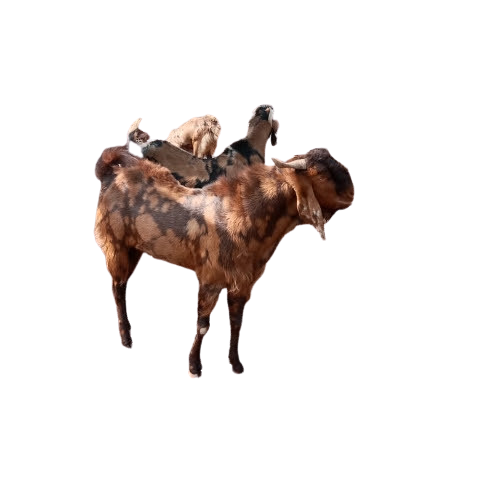
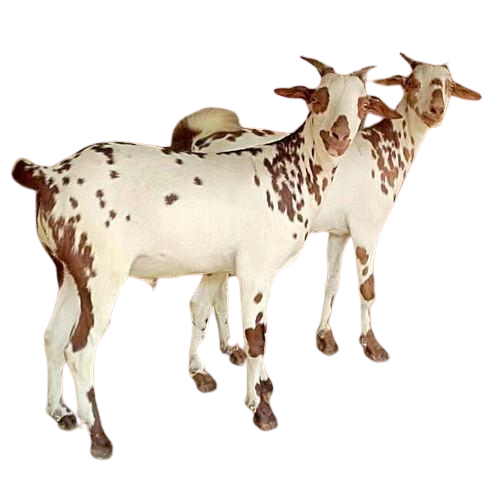
The Barbari breed is popular in NCR, Uttar Pradesh and Haryana. Farmers who want milk and meat benefits from their goats can rear this breed. Barbari needs less space and doesn't need much mobility. Here are other crucial characteristics of Barbari goats.
Physical Attributes: Barbari has short hair and erected horns, and it comes with white and brown patches.
Body Weight: An adult barbari goat weighs between 18 to 25 kg.
Milk Production: Baribari goat gives 1.5 litres ( with 5% fat content) of milk per day.
Litter Size: This breed has good reproduction capabilities, they can give kids twice in 12 to 15 months. Also, it can produce 2 to 3 kids in parturition.
The name of this breed comes from its area of origin. This breed is found in parts of Rajasthan like Jodhpur, Jaipur, Pali, Barmer and Jaisalmer. Marwari is a mid-size goat with long hair. Goat farmers can earn from their milk, meat and hair. Their hair is generally used in carpet weaving. Here are some other characteristics of Marwari.
Physical Attributes: Marwari breed has long legs, a prominent nose, a black face, slanted ears and a short tail.
Body Weight: An adult Marwari goat weighs around 18 kg.
Milk Production: Marwari goats can give 102 litres of milk in 117 days.
Hair Yield: Marwari goats can yield around 200 gm of hair in a year.
Marwari goats also have a good immune system, which saves them from disease and worms.
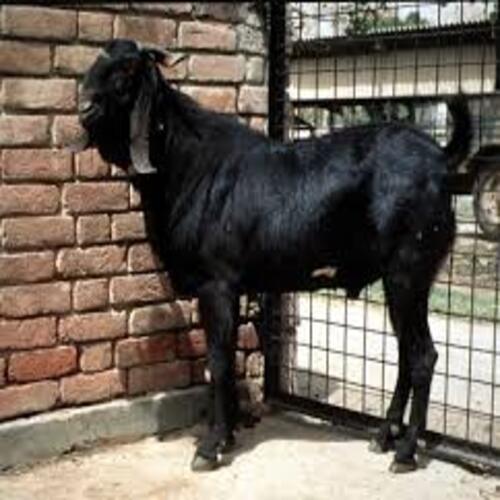
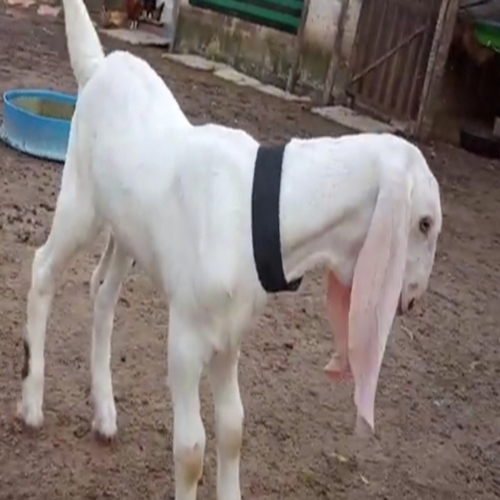
The area of origin is evident from its name only. Jamnapari goat is found in UP. Jamunapari is called Sajot in Rajasthan. Sojat goat price is a significant factor that makes it ideal for goat farming in India. It has a strong build, which makes it big in size. This breed comes in white. However, some goats have black markings on their neck and head. Jamnapari is one of the best goat breeds for commercial goat farming purposes like the trade of milk and meat.
Physical Attributes: Jamnapari has a roman nose,Â
Milk Production: It gives 200 litres of milk in 190 days.
Body Weight: The body weight of a doe goes between 22 to 26 kgs, whereas a Buck weighs between 45 to 36.
Beetal goat come in an expensive range. Beetal goat price remains high so, many goat farmers like Beetal goat farming in India.
Therefore, with post selection of a goat breed for farming purposes, you will move to the next step.
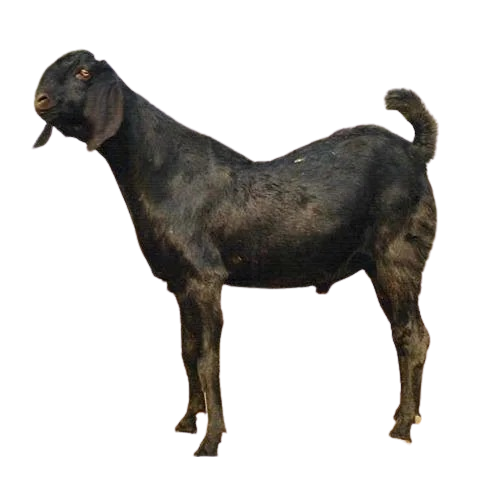
Identify the Right Location for Your Goat Farm
When selecting a location for your goat farm, consider factors such as climate, topography, soil type, and accessibility. Goats thrive in areas with mild climates, well- drained soils, and access to pasture, water, and shade. The location should also be easily accessible for suppliers, customers, and employees.
Set up Proper Housing and Fencing
However, goats do not need much space. But still, you may need to create a shed for them which will protect them from harsh weather conditions and predators. You can build a sturdy and well-ventilated barn with enough space for goats to move around and rest comfortably. Additionally, install proper fencing to keep goats from wandering off and to protect them from predators.
Plan Your Feeding and Nutrition Program
Goats require a balanced diet that consists of roughage, such as hay, pasture, and browse, as well as grains and supplements. Develop a feeding plan that meets the nutritional requirements of your goats, and ensure they have access to clean water at all times.
Develop a Herd Health Management Plan
Goats are susceptible to various diseases and parasites that can affect their health and productivity. Develop a herd health management plan that includes regular vaccinations, deworming, and veterinary checkups. Additionally, practice good hygiene and sanitation to prevent the
The Expertise of Bhumika Animal Breeder Farm in Goat Farming in India
Bhumika Animal Breeder Farm is known for its quality livestock farming consulting services in India. Our decades of experience in animal farming plays an instrumental role in establishing us as the leading livestock breeding farm in India.
Individuals who wish to start goat farming in mp or other parts of India can reach us for exclusive details on goat farming in India. A brief update on our goat farming services explains our expertise in goat farming in India.
- Perfect Habitat for Goat Farming
- Special Focus on Worker Training
- Hygienic Environment
- Regular Health Check-up for Goats
- Availability of Quality Feeds
- Ideal infrastructure for Goat Breeding
- Training Workshops on Goat Farming
- Trained Staff to Address Goat Farming Queries
- Regular workshops on the latest practices in goat farming in India
